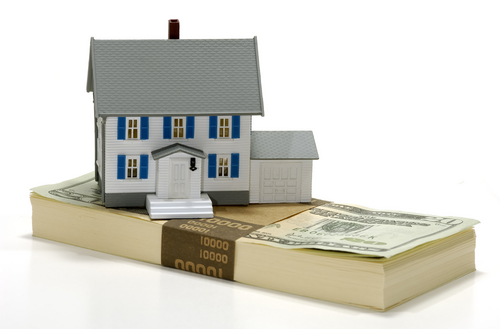Finding out just how much equity you have in your home could be the key to being able to tap into a needed source of cash. If you have lived in your current home for some time, then it most likely has built up some equity, and you may be able to tap into your home equity value for whatever financial needs or wants you have.
In today’s housing market, it is true that many homes have lost value, which will also affect how much equity you have in your home. Naturally, a decrease in your home’s value will also mean less home equity. The Bank of America says that you can calculate your equity simply by subtracting the amount of your mortgage from the home’s appraised value. The difference is your equity.
If you are seriously considering getting a home equity loan or refinancing your mortgage, you may need to have an appraisal on the value of your home. Your lender will do this for you, but you will need to pay for it, and the cost will be added to the total value of your home equity loan. The process involved is just like getting another mortgage, and it will have most of the same fees and terms attached to it.
A home equity loan can provide you with cash equal to about 85 percent of the value of your equity. This type of loan can be given in the form of a lump sum, and it has a fixed interest rate and a fixed time for repayment.
Home equity loans may also be made available as a line of credit (HELOC), if you are not sure how much money you actually need or want to borrow. An advantage of a HELOC is that you only pay interest on the amount of cash you have withdrawn from the account. The interest rate, reports the Wall Street Journal, is flexible, and you will have only so many years in which you can withdraw cash – then comes the repayment period.
Before you decide to tap into your home’s equity, however, the Federal Trade Commission provides a little warning. A home equity loan is secured by the home itself. This means that if you should default on the loan, then you will probably have to sell the house in order to satisfy the loan.
Lenders will differ in the amount of an equity loan that they will give you, as well as attaching different fees and terms to it. In order to find the best deal on a home equity loan, you will want to shop around and compare options. Even before you do that, however, make sure your credit score is good first, and this will enable you to get better deals and interest rates. It is also a good idea to check for complaints against some lenders before you take out a new loan, because some do not live up to the expected promises.
The Bank of America says that you can ensure that your home is worth more by taking several steps. Being worth more increases your home equity value. Keeping it well maintained and attractive is very important, as well as making improvements or additions to it.
Finding out just how much equity you have in your home could be the key to being able to tap into a needed source of cash. If you have lived in your current home for some time, then it most likely has built up some equity, and you may be able to tap into your home equity value for whatever financial needs or wants you have.
In today’s housing market, it is true that many homes have lost value, which will also affect how much equity you have in your home. Naturally, a decrease in your home’s value will also mean less home equity. The Bank of America says that you can calculate your equity simply by subtracting the amount of your mortgage from the home’s appraised value. The difference is your equity.
If you are seriously considering getting a home equity loan or refinancing your mortgage, you may need to have an appraisal on the value of your home. Your lender will do this for you, but you will need to pay for it, and the cost will be added to the total value of your home equity loan. The process involved is just like getting another mortgage, and it will have most of the same fees and terms attached to it.
A home equity loan can provide you with cash equal to about 85 percent of the value of your equity. This type of loan can be given in the form of a lump sum, and it has a fixed interest rate and a fixed time for repayment.
Home equity loans may also be made available as a line of credit (HELOC), if you are not sure how much money you actually need or want to borrow. An advantage of a HELOC is that you only pay interest on the amount of cash you have withdrawn from the account. The interest rate, reports the Wall Street Journal, is flexible, and you will have only so many years in which you can withdraw cash – then comes the repayment period.
Before you decide to tap into your home’s equity, however, the Federal Trade Commission provides a little warning. A home equity loan is secured by the home itself. This means that if you should default on the loan, then you will probably have to sell the house in order to satisfy the loan.
Lenders will differ in the amount of an equity loan that they will give you, as well as attaching different fees and terms to it. In order to find the best deal on a home equity loan, you will want to shop around and compare options. Even before you do that, however, make sure your credit score is good first, and this will enable you to get better deals and interest rates. It is also a good idea to check for complaints against some lenders before you take out a new loan, because some do not live up to the expected promises.
The Bank of America says that you can ensure that your home is worth more by taking several steps. Being worth more increases your home equity value. Keeping it well maintained and attractive is very important, as well as making improvements or additions to it.






